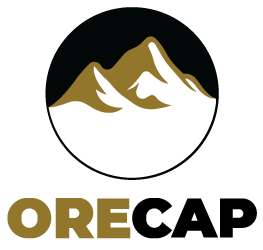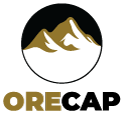News Releases
Orefinders identifies Inferred Mineral Resource of 10,618,000 tonnes averaging 1.29 gpt Au at the Mirado Gold Project, Kirkland Lake
December 09, 2013
Orefinders identifies Inferred Mineral Resource of 10,618,000 tonnes averaging 1.29 gpt Au at the Mirado Gold Project, Kirkland Lake
Orefinders Resources Inc. (TSX.V: ORX) reports that it has identified an inferred mineral resource of 10,618,000 tonnes with an average grade of 1.29 grams per tonne gold (gpt Au) in open pit, underground and three separate stockpiles located on Orefinders’ 100% owned Mirado property.
The Mirado gold project is an advanced resource delineation stage exploration project situated on patented claims accessible by an all-season road 35 kilometers southeast of the gold rich mining district of Kirkland Lake, Ontario. Nearby infrastructure includes power, rail, active gold mining operations and a local skilled labor force. Significant 2013 drill intersections reported by Orefinders as well as historical drill results led to the delineation of gold mineralization of sufficient merit to support the preparation of an initial mineral resource evaluation at Mirado.
The mineral resources are reported in accordance with Canadian Securities Administrator’s National Instrument 43-101 and have been estimated in conformity with generally accepted CIM Estimation of Mineral Resource and Mineral Reserves Best Practices Guidelines. Orefinders commissioned SRK Consulting (Canada) Inc. (“SRK”) to complete a mineral resource estimate for the Mirado gold project. The mineral resource estimation work was completed by Dr. Lars Weiershäuser, P.Geo. and was reviewed by Glen Cole, P.Geo.. Dr. Weiershäuser and Mr. Cole are both independent Qualified Persons as this term is defined in National Instrument 43-101. Dr. Weiershäuser inspected the Mirado gold project on July 15 to 17, 2013. Goran Andric, PEng undertook an open pit optimization study to support the mineral resource statement.
SRK considers the gold mineralization at the Mirado project as primarily amenable to open pit extraction. Open pit resources are reported at a cut-off grade of 0.45 gpt gold within a conceptual pit shell. The mineral resources have been estimated using a geostatistical block modelling approach informed from core borehole data. Gold mineralized zones were defined using a wireframe interpretation constructed from drilling data using Leapfrog® and GEMS software. Orefinders drilling efforts focused primarily on the Main zone; however, the North block and down dip extensions to the known mineralization were also tested to a limited extent. In order to determine the quantities of material offering “reasonable prospects for economic extraction” using an open pit scenario, a conceptual pit shell was developed using Whittle software and its Lerchs-Grossman optimization algorithm. The optimization parameters used by SRK are presented in Table 1.
Table 1: Conceptual Assumptions Considered for Open Pit Resource Reporting
| Parameter | Assumption |
| Pit wall angle | 50 degrees |
| Mining cost (ore and waste) | C$2.00/t rock |
| Process cost including G & A costs | US$15/t |
| Process recovery | 95% gold |
| Assumed process rate | 5,000 tpd from open pit and underground |
| Metal price | US$1,400 /oz gold |
| Mining dilution and losses | 5.0% |
SRK advised that a reporting cut-off grade of 0.45 gpt gold is appropriate for reporting open pit and stockpile mineral resources considering a gold price of US$1,400 per ounce of gold and a gold recovery of 95 percent. SRK considers that a cut-off grade of 2.0 gpt gold is appropriate for reporting underground mineral resources.
However, Orefinders elected to report the stockpile mineral resources at a cut-off grade of 2.0 gpt gold in the view of possible off-site toll milling prior to any mine development. SRK considers this cut-off grade to be reasonable.
The Mineral Resource Statement for the open pit, underground and three stockpiles is presented in Table 2.
Table 2: Mineral Resource Statement*, Mirado Gold Project, Ontario, SRK Consulting (Canada) Inc., November 18, 2013

* Mineral resources are not mineral reserves and do not have a demonstrated economic viability. All figures have
been rounded to reflect the relative accuracy of the estimates. Reported at a cut-off grade of 0.45 gpt gold for resources inside a conceptual pit; and 2.0 gpt gold for mineralized piles and for resources for which an underground extraction scenario is assumed; a gold price of US$1,400 per ounce; and metallurgical recovery of 95 percent.
** Mineral resources in historical mineralized piles have been reported by Orefinders in a news release dated October 30, 2013.
Mineral Resource Estimation Methodology
The Mirado gold project database contains 247 core boreholes, 242 (31,700 metres) of which were considered for resource estimation. Of this total, Orefinders completed 40 core boreholes (12,060 metres). This database represents drilling data acquired between 1980 and 2013 by Amax Minerals Exploration (AMAX), Golden Shield Resources Ltd. (Golden Shield), and Orefinders. The borehole data include collar location, down-hole survey data, lithology codes, and 19,091 sample intervals assayed for gold. SRK also received analytical quality control data for the drilling completed by Orefinders (2013), which include assay results for field blanks, field duplicates, and standard reference materials inserted within all sample batches submitted for assaying. Samples were also collected over surveyed grids on all three stockpiles. An excavator was used to determine true thickness. A differential GPS receiver was used to survey the extent of the stockpiles, aiding in the determination of their volume. Survey points were recorded in UTM coordinates using NAD 83.
SRK did not find any problems with the Orefinders database, but was unable to validate the quality of the historical 1980-1987 Amax and Golden Shield drill hole data. SRK considers the database adequate to support mineral resource evaluation and that the modelled geological wireframes are a reasonable interpretation of the boundaries of the gold mineralization at the current sampling spacing. However, the project database contains significant historical data of uncertain quality. As a result SRK relied on the data compilation completed by Orefinders and built geological wireframes based on a structural geology investigation completed by SRK during the months of August and September, 2013. Mineral resources were estimated within geological wireframes.
A block model was created to cover the entire area of gold mineralization at the Mirado gold project. The block model was set on a grid of 5 by 5 by 5 metres. The block model is not rotated. Separate block models were created for each of the three stockpiles. Block sizes were chosen to take into account the thickness of the stockpiles and sample spacing. Block models for the Central and Southern stockpiles are not rotated. The model parameters are summarized in Table 3.
Table 3: Mirado Gold Project Block Model Parameters

Due to the lack of specific gravity data and uncertainties with regard to the quality of the data for the historical drilling, SRK considers that it is appropriate to classify all modelled blocks to the Inferred category within the meaning of the CIM Definition Standards for Mineral Resources and Mineral Reserves. Mineral resources are not mineral reserves and have not demonstrated economic viability. There is no certainty that all or any part of the mineral resources will be converted into mineral reserves. It is uncertain if further exploration will allow upgrading the classification of the Inferred mineral resources.
A technical report following the guidelines of Canadian Securities Administrators’ National Instrument 43-101 in support of the Mirado Mineral Resource Statement is currently being prepared by SRK. A wireframe model of the deposit and cross sections can be viewed in the coreshack section of the Orefinders website at www.orefinders.ca.
Bill Yeomans, President of Orefinders, states that, “In 2013 Orefinders has outlined the largest mineral resource reported to date in the 100 year history of exploration at Mirado. Our modest first year 12,060 meter drill program was completed in seven months with forty diamond drill holes. We successfully outlined 442,000 ounces at a discovery cost of less than CDN $5 dollars per ounce. During this time, Orefinders tripled its land position at the Mirado project to over 3,440 acres. The deposit remains open to further expansion to the northwest and southeast of the current open pit resource with several kilometers of untested drill targets now secured along strike. The deposit is by no means drilled off. Only seven drill holes tested the North Zone, where a deep seated feeder to the gold mineralization will require further drilling to test potential for expansion of the current underground mineral resource. Metallurgical testwork is currently underway on our current resource of 20,742 tonnes of stockpiled material averaging 4.41 gpt gold. A significant amount of pre-stripping of overburden took place over the starter pit, where the historical 1987 open pit bulk sampling, underground development and stockpiling programs occurred. Several kilometers of currently flooded underground workings were refurbished in 1987 by Dynatec. We feel that the historical starter pit pre-stripping, refurbished underground workings along with the stockpiles add significant value to our current resource.”
The chemical analyses were conducted in ALS Minerals’ ISO 9001:2008 certified Vancouver, BC laboratory facility; gold values were determined using a fire assay method with a gravimetric over-limit finish. Multi-element (ME-ICP41) techniques yielded assays for a 35 element suite of minerals. All samples collected for analysis were processed using Orefinders’ strict QA/QC (quality assurance / quality control) program which includes the insertion of standards, duplicates and blanks for quality control of the assays. The technical information contained in this news release has been reviewed and approved by Kevin Piepgrass, P.Geo, Vice-President Exploration for Orefinders, who is a Qualified Person as defined in “National Instrument 43-101, Standards of Disclosure for Mineral Projects.”
On behalf of the Board of Directors
“William Yeomans”
William Yeomans, P. Geo
President
Certain information in this press release may contain forward-looking statements. This information is based on current expectations that are subject to significant risks and uncertainties that are difficult to predict. Actual results may differ materially from results suggested in any forward-looking statements. Orefinders assumes no obligations to update the forward-looking statements, or to update the reasons why actual results could differ from those reflected in the forward-looking statements unless required by securities laws applicable to Orefinders. Additional information identifying risks and uncertainties is contained in filings by Orefinders with Canadian securities regulators, which filings are available under Orefinders profile at www.sedar.com.
For further information, please contact
William Yeomans, P. Geo.
President
Phone: 1-250-707-0911
E-mail: byeomans@orefinders.ca
Or
Stephen Stewart
VP Corporate Development
Phone: 1-416-644-1567
E-mail: sstewart@orefinders.ca


